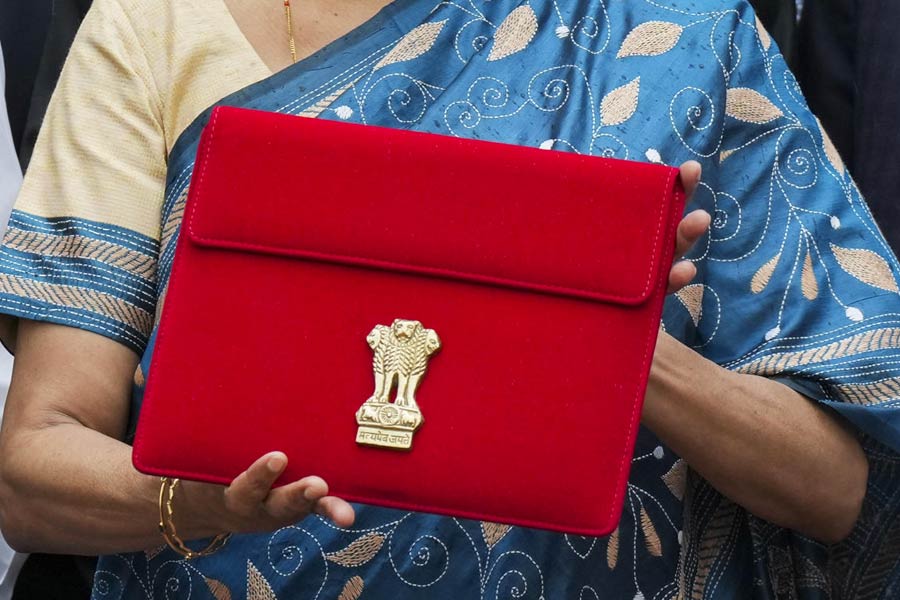The Union budget for 2024-25 does not contain any surprises that might have a marked positive impact on the nation’s economic performance. The expected political quid pro quo came in the form of special packages for Andhra Pradesh and Bihar. This may set an uncomfortable precedence with such gifting of resources becoming a normal part of budgetary negotiations. On the expenditure side, a number of new schemes have been spread thin over numerous sectors where interventions are required. These schemes and the allocations made for them are all summed up to benefit the poor and the disadvantaged. Such proposals usually come by the dozen in any budget — they usually carry the ‘Pradhan Mantri Yojana’ tag. Some benefits do trickle down to a select group of beneficiaries but they seldom have a momentum that boosts income
and employment in any sustained manner.
On the fiscal management front, the finance minister, Nirmala Sitharaman, has done well to maintain discipline with the fiscal deficit: she has been able to keep the glide-path to 4.5% by the next fiscal year. This year, she has brought down the fiscal deficit from 5.6% to 4.9%. On taxes, Ms Sitharaman has rationalised a number of customs duties, tinkered a bit with the slabs and standard deduction in the new income tax regime, and sought to rationalise the capital gains tax. The slight increase in the long-term capital gains tax has disappointed the market. This has come at a time when more and more small investors are entering capital markets and moving away from banks. In fact, this move may be good news for the governor of the Reserve Bank of India who had expressed concern about the falling growth rate of new deposits coming in to the commercial banks.
The two biggest problems facing the economy have been the lack of employment opportunities and inflation fuelled by food prices. On the latter, the budget announces steps to increase natural farming but does not clarify how these would have any immediate impact on inadequate food production. Several measures have been announced with much flourish regarding the crucial issue of employment. However, the plan seems to be to put the onus of job creation on the private sector and on employers in general. The internship scheme, for instance, will require 500 companies to take interns for 12 months and pay them Rs 5,000 per month out of their CSR funds. The availability of cheap labour all year round might make these companies hesitant to recruit new workers on a more regular basis. For the interns, this does not constitute long-term employment with a clear career progression path, nor do they necessarily get work experience that enhances their employability. Skilling youth to fit into industrial jobs has received a lot of attention. What is not clear is whether there would be adequate demand for these freshly-skilled youths. The four segments of Viksit Bharat — women, youth, the poor and the farmers — may not end up doing much better after this budget is dusted and shelved.










